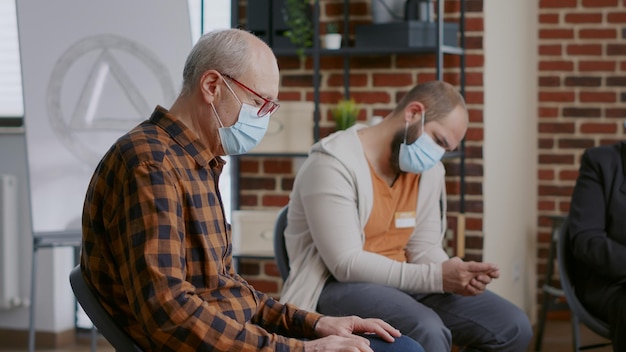
Recovering from addiction is a deeply personal journey, often filled with complexities. For women, this journey comes with its own set of unique challenges and societal pressures, making their experience quite different from that of men.
This exploration delves into the world of addiction recovery for women, shedding light on the obstacles they face, the societal pressures they encounter, and the resilience needed to navigate this difficult path.
Society often judges women with addiction issues more harshly than men. The stigma attached to being a mother, wife, or professional dealing with substance abuse can intensify feelings of shame and guilt. Women are often expected to maintain control over their emotions and actions, making it harder to seek help without fear of judgment or consequences in their personal and professional lives.
This societal pressure affects not only how women are seen but also their willingness to seek treatment. Changing this narrative begins with promoting a more compassionate and supportive environment, encouraging recovery without stigma.
Physical health is crucial in the recovery process. For women, addiction’s impact on physical health can be significant, often needing specific nutritional plans for balance and healing. Nutrition in alcohol recovery is vital as it helps repair organ damage, boosts energy, and stabilizes moods, which is essential for maintaining sobriety.
A balanced diet rich in vitamins, minerals, and antioxidants can greatly aid the recovery process. Nutritionists and recovery programs are increasingly highlighting the importance of dietary plans tailored to women’s unique physiological needs.
Women are more likely to experience co-occurring mental health disorders like anxiety and depression alongside addiction. Effectively addressing these issues requires a dual treatment approach. Therapeutic interventions such as cognitive-behavioral therapy, mindfulness practices, and trauma-informed care are essential. These methods help women tackle the underlying issues contributing to their addiction, providing them with coping mechanisms and a deeper understanding of their emotional and psychological states.
Community support can be a crucial lifeline in recovery. Women benefit significantly from networks that provide empathy, understanding, and shared experiences. Support groups specifically for women offer a safe space to discuss sensitive issues like domestic abuse, parenting challenges, and societal pressures that might not be as comfortably addressed in mixed groups.
Building a supportive community also involves family and friends, who play a vital role in offering love, encouragement, and practical assistance during the recovery process.
Many women in recovery are caregivers, adding complexity to managing treatment and family responsibilities. Balancing the demands of recovery with the responsibilities of motherhood or being a partner is challenging. Programs that offer family therapy, childcare, or parenting classes can be incredibly helpful, allowing women to fully engage in their recovery without neglecting their family duties, ensuring a holistic healing process.
Finding a rehabilitation facility that caters specifically to women’s needs is essential. These facilities should understand the biological and psychological differences in addiction treatment between genders and provide a supportive environment that respects privacy and promotes healing.
When considering rehab options, look into centers in different U.S. cities to find the best fit. Cities like Boston, Austin, and Denver offer reputable programs. Sometimes, traveling to a peaceful location can aid the healing process. California is a popular choice, so consider rehab centers in places like San Diego or Newport Beach for women. A variety of choices helps women select a facility where they feel comfortable, optimizing their recovery journey.
Women’s addiction recovery is filled with unique challenges that require specific approaches and understanding. By addressing the societal, nutritional, emotional, and familial aspects of recovery and ensuring access to supportive and specialized care, we can pave the way for successful long-term sobriety for women. Recovery is not just about overcoming addiction but about reclaiming a life filled with fulfillment and possibilities.